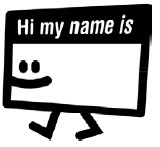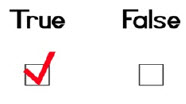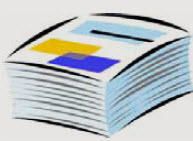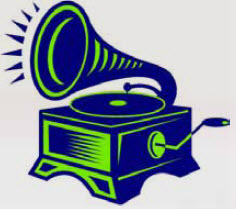Date of Birth, number of siblings, passport number, and minute details of project executed 15 years back. While these are memorable events or significant milestones (or both) of your life, they have possibly no relevance for the job you are applying for.
These and a few more contribute to making your document a recruiters nightmare. We believe that the readers have a fair idea of what a resume should contain, but have you looked at what it should not contain?
Generic document name
Resume.docx, My CV.doc, Bio-data.pdf, Developer profile.doc do not invite the reader to open them. The reader/ recruiter has to necessarily open it and understand the background just to categorise it or send to the appropriate person. Such names do not have any recall value and people will have to re-open every time to check. Just imagine the headache when you have 10 resumes titled "My Resume.doc".

Give it a meaningful name that includes your name, key skill that you are trying to project and if desired, number of years. For instance, "Ramesh Kumar - Java-JSP - 2.5 years". In three seconds, the recruiter will decide whom to send your profile to, without having to open it.
Untruths
Disadvantage - Huge pressure on utilization rates.

Some minor polishing of the resume may be in order, but if it contains matter which is not truthful, consider yourself in trouble. Recruiters like people who are straight-forward, rather than those who pretend to be something they are not. You may get away for some time, but remember that companies have strong policies about faked past - they usually talk about immediate termination from the job. You need to be fired up about your job, not fired from it. The choice is yours.
Length

Experienced resources seem to fall prey to the temptation of listing everything that they accomplished from the beginning of their career and invariably end up with an average of one page per year. Remember that employers are looking for what you have to offer, not your autobiography. It may be difficult to believe, but a 10-year industry experience can be compressed in a crisp couple of pages without loss of what you have to offer and what you seek at the next place of employment.
Detail

A good bit of detail about the latest work you have been doing is very useful, but not about every project you have been involved in. High-level details of projects long past will suffice. For a key accomplishment in an old project, put it up in the summary/accomplishments section; don't hide it in the detail.
Bad Quality

Poor spelling and bad grammar give the impression of either a hastily prepared resume or a lazily drafted one, neither of which is going to endear yourself to the prospective employer. The question in the employers' mind will be: If this is the attention to detail the candidate pays to his own profile, can I expect anything better of the work that will be assigned to him/ her? To dispel any such doubts, ensure that the resume makes the right impression.

Obsolescence
Proclaimed expertise in technologies and tools which are no longer in use may indicate that you are a relic of the past. It is acceptable to mention them in the passing during a conversation, but stating FORTRAN, Clipper or dBASE as key tools you have worked with will not embellish your resume.
State the ones that are important for the job at hand and omit those whose "Valid By" date is past. And, even for a hot technology, if you dont remember the details of what you did, leave it out or prepare to be grilled about your ignorance. Read More
Passport Number
Just think what a prospective employer will do with it. Probably nothing. The resume is not the place to declare that you have a passport. You can respond when asked. In fact, it is not a good thing to flash around your passport number.

Family Details

Parents' occupation, siblings' qualification, number of goats or beyblades owned are interesting pieces of information that can be shared with acquaintances over a cup of tea. These are not academic or extracurricular accomplishments of yours. Consider leaving them out of the resume.
Languages known, marital status

Unless there is relevance to the job that is being applied for, they can be skipped. Yes, the number of languages you know may be an eye-catcher for say, education industry or a call centre job, your assumed proficiency in English will suffice in most others and best left unmentioned. It is good for fresh joinees to list their hobbies. But, please avoid items like general reading, browsing, chatting, etc., which do not say anything specific about you or your likes.
Declaration

Everyone expects your curriculum vitae to speak the truth. Your declaration that "...true to the best of my knowledge and belief ..." is implied and taken for granted. Second, when the document is transmitted electronically, there would be no means of signing it either. Omit the section. No one will notice it missing. One-man job
One-man job

Last, the resume is yours and yours alone. However, make it a point to have it reviewed independently. People can catch slips and mistakes that Spell Check and Grammar Check miss.
There is nothing worse than a prospective employer seeing that you have excellent "skills to asses" rather than "skills to assess".
All the best!
About the Author
Sudarsan Santhanam is the Offshore Mentor at Elait Ltd.